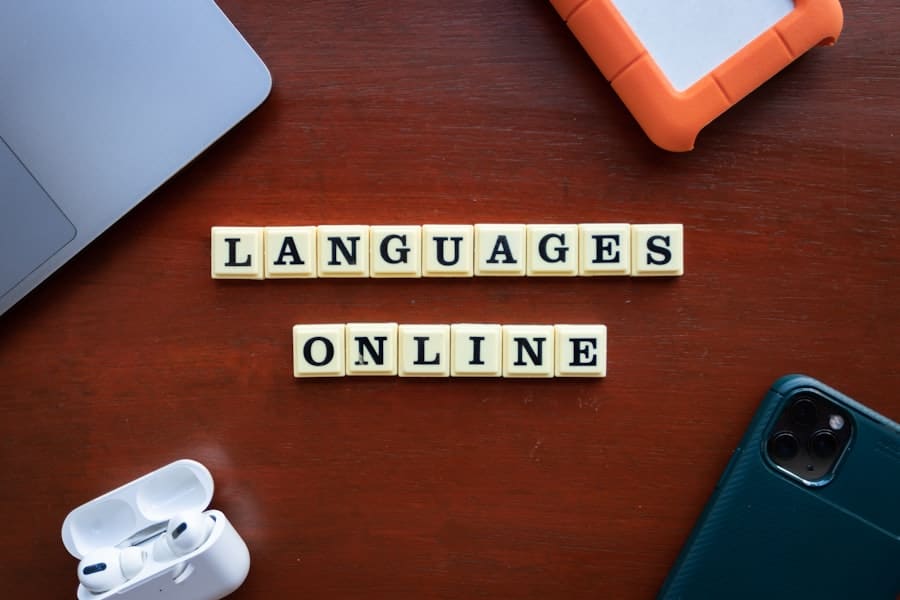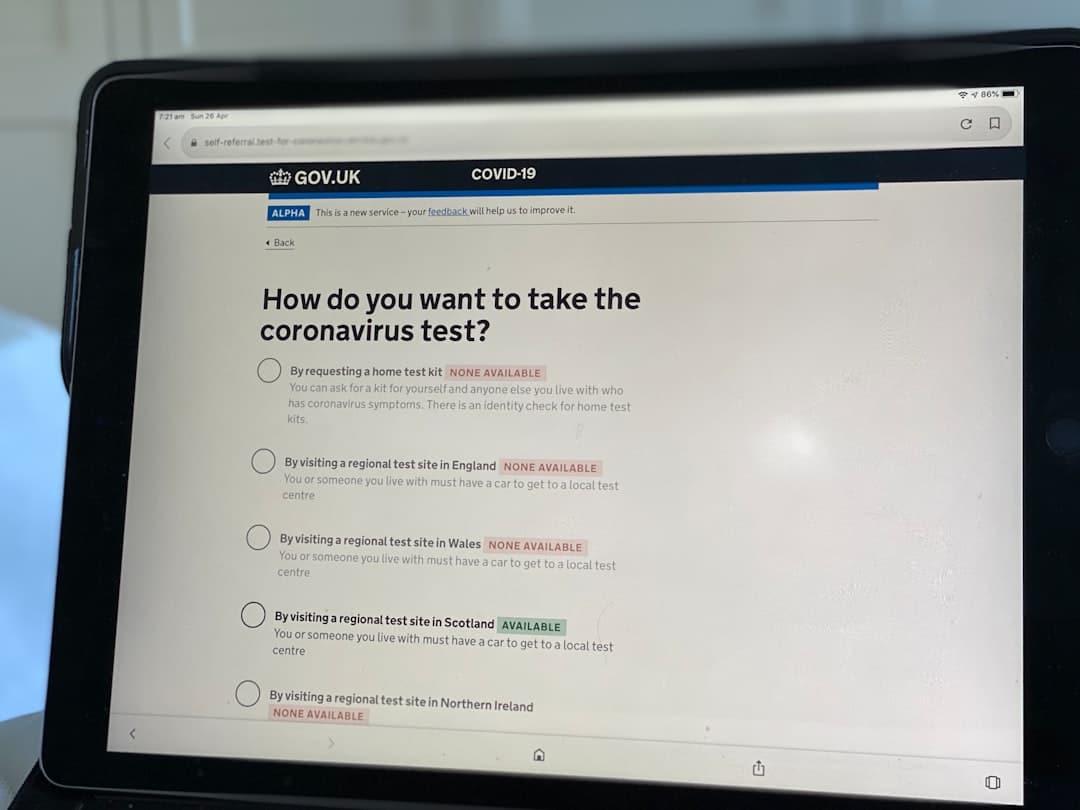The landscape of education has undergone a significant transformation in recent years, particularly in the realm of test preparation. The rise of educational technology, or EdTech, has revolutionized how students prepare for standardized tests such as the SAT, ACT, GRE, and GMAT. This shift is largely attributed to the increasing integration of digital tools and platforms that offer innovative solutions to traditional study methods.
With the proliferation of online resources, mobile applications, and interactive learning environments, students now have access to a wealth of information and practice materials at their fingertips. This democratization of knowledge has made it easier for learners to engage with content in a manner that suits their individual learning styles. Moreover, the COVID-19 pandemic accelerated the adoption of EdTech in test preparation as educational institutions and tutoring centers were forced to pivot to online formats.
Virtual classrooms and remote learning became the norm, leading to the development of sophisticated online platforms that provide comprehensive test prep resources. Companies like Khan Academy and Magoosh have emerged as leaders in this space, offering free and affordable courses that cater to a diverse range of learners. The ability to access high-quality educational materials from anywhere in the world has not only enhanced the learning experience but has also made test preparation more flexible and convenient for students juggling multiple responsibilities.
Key Takeaways
- EdTech has revolutionized test preparation by providing accessible and affordable tools for students.
- Customized learning and personalized study plans are now possible with the help of EdTech, allowing students to tailor their preparation to their individual needs.
- EdTech is breaking down barriers to education by providing resources and support to underprivileged students who may not have had access to traditional test prep methods.
- By bridging the gap for underprivileged students, EdTech is leveling the playing field and providing equal opportunities for success in standardized testing.
- The impact of EdTech on standardized testing has been significant, with improved access to resources and personalized study plans leading to better outcomes for students.
Accessibility and Affordability of Test Prep Tools
One of the most significant advantages of EdTech in test preparation is its potential to enhance accessibility and affordability. Traditional test prep courses can be prohibitively expensive, often costing hundreds or even thousands of dollars. In contrast, many EdTech solutions offer free or low-cost alternatives that provide students with the same quality of instruction and resources.
For instance, platforms like Quizlet and StudyBlue allow users to create and share flashcards, quizzes, and study guides without any financial burden. This shift towards more affordable options has opened doors for students who may have previously been unable to access quality test prep due to financial constraints. Furthermore, the accessibility of EdTech tools extends beyond cost; it also encompasses the ability to learn at one’s own pace and on one’s own schedule.
Online platforms often feature adaptive learning technologies that tailor content to individual student needs, allowing learners to focus on areas where they require the most improvement. This personalized approach not only enhances understanding but also fosters a sense of ownership over the learning process. As a result, students can engage with test preparation materials in a way that aligns with their unique learning preferences, ultimately leading to better outcomes.
Customized Learning and Personalized Study Plans

The advent of EdTech has ushered in an era of customized learning experiences that were previously unimaginable in traditional educational settings. Personalized study plans are now a hallmark of many test prep platforms, enabling students to create tailored schedules that align with their specific goals and timelines. For example, platforms like PrepScholar utilize algorithms to assess a student’s strengths and weaknesses, generating a customized study plan that focuses on areas needing improvement.
This level of personalization not only enhances engagement but also maximizes efficiency by ensuring that students spend their time on content that will yield the greatest benefit.
By integrating game-like features such as points, badges, and leaderboards, platforms can motivate students to stay committed to their study routines.
This approach not only makes the learning process more enjoyable but also encourages healthy competition among peers.
Breaking Down Barriers to Education with EdTech
EdTech has played a pivotal role in breaking down barriers to education, particularly for marginalized communities and individuals facing systemic challenges. The traditional education system often perpetuates inequalities based on socioeconomic status, geographic location, and access to resources. However, the rise of online learning platforms has created opportunities for students who may have been previously underserved by conventional educational institutions.
For instance, rural students who lack access to high-quality tutoring services can now benefit from online test prep courses that connect them with expert instructors from around the country. Moreover, EdTech has facilitated the creation of inclusive learning environments that cater to diverse learning needs. Many platforms offer features such as closed captioning, audio support, and interactive exercises designed for various learning styles.
This inclusivity ensures that all students, regardless of their background or abilities, have the opportunity to succeed in their test preparation efforts. By leveraging technology to create equitable access to educational resources, EdTech is helping to dismantle long-standing barriers that have hindered academic achievement for many.
Bridging the Gap for Underprivileged Students
The impact of EdTech on underprivileged students cannot be overstated. Many organizations are leveraging technology to provide free or low-cost test preparation resources specifically designed for low-income learners. For example, initiatives like College Board’s partnership with Khan Academy offer free SAT prep resources to students from disadvantaged backgrounds.
This collaboration not only provides access to high-quality materials but also empowers students with the knowledge and skills necessary to navigate the college admissions process successfully. Additionally, community organizations and nonprofits are increasingly utilizing EdTech tools to reach underprivileged students in innovative ways. Programs that offer after-school tutoring or summer enrichment camps often incorporate digital resources into their curricula, allowing students to engage with content outside of traditional classroom settings.
By bridging the gap between technology and education, these initiatives are equipping underprivileged students with the tools they need to excel academically and pursue higher education opportunities.
The Impact of EdTech on Standardized Testing

The integration of EdTech into test preparation has had a profound impact on standardized testing itself. As students become more adept at utilizing digital tools for study purposes, there is a growing expectation for standardized tests to evolve alongside these advancements. Many testing organizations are beginning to recognize this shift and are adapting their assessments accordingly.
For instance, the College Board has introduced digital SAT testing options that allow students to take the exam on a computer rather than on paper. This transition not only reflects changing student preferences but also aligns with the technological landscape in which they are preparing. Moreover, the data-driven nature of EdTech allows for more nuanced insights into student performance on standardized tests.
Platforms that track user progress can provide valuable analytics that help educators identify trends and areas for improvement within their curricula. This data can inform instructional strategies and lead to more effective teaching practices that ultimately benefit students preparing for standardized assessments.
The Future of Test Preparation with EdTech
Looking ahead, the future of test preparation is poised for continued innovation driven by advancements in technology. Artificial intelligence (AI) is expected to play a significant role in shaping personalized learning experiences even further. AI-powered platforms can analyze vast amounts of data to predict student performance and recommend targeted study materials based on individual learning patterns.
This level of sophistication will enable even greater customization in test prep strategies, ensuring that each student receives a tailored approach that maximizes their chances of success. Additionally, as virtual reality (VR) and augmented reality (AR) technologies become more mainstream, they may find applications in test preparation as well. Imagine a scenario where students can immerse themselves in interactive simulations that replicate real-world testing environments or engage with complex concepts through 3D visualizations.
Such innovations could transform how students prepare for exams by providing experiential learning opportunities that enhance understanding and retention.
Overcoming Challenges and Adapting to New Technologies
Despite the numerous benefits associated with EdTech in test preparation, challenges remain that must be addressed for its full potential to be realized. One significant hurdle is the digital divide; not all students have equal access to technology or reliable internet connections. This disparity can exacerbate existing inequalities in education and limit opportunities for those who are already disadvantaged.
To combat this issue, stakeholders must work collaboratively to ensure that all students have access to the necessary tools and resources required for effective test preparation. Furthermore, educators must adapt their teaching methodologies to incorporate new technologies effectively. Professional development programs focused on integrating EdTech into curricula can empower teachers with the skills needed to leverage these tools effectively in their classrooms.
By fostering a culture of continuous learning among educators, schools can create an environment where both teachers and students thrive in an increasingly digital world. In conclusion, while EdTech presents exciting opportunities for enhancing test preparation experiences, it is essential to remain vigilant about addressing challenges related to accessibility and equity. By prioritizing inclusivity and investing in professional development for educators, we can ensure that all students benefit from the transformative power of technology in their educational journeys.
In a related article discussing the latest marketing technologies for 2023, it is evident that advancements in technology are reshaping various industries, including education. The article highlights how innovative tools and platforms are revolutionizing the way companies reach their target audience and engage with customers. This shift towards digital solutions mirrors the transformation happening in the education sector, where EdTech is democratizing access to test preparation tools. To learn more about the cutting-edge marketing technologies shaping the future, check out the article here.
FAQs
What is EdTech?
EdTech, short for educational technology, refers to the use of technology to facilitate learning and improve educational outcomes. This can include the use of digital tools, software, and platforms to enhance teaching and learning.
How is EdTech democratizing access to test preparation tools?
EdTech is making test preparation tools more accessible by providing online platforms and resources that can be accessed from anywhere with an internet connection. This allows students from all backgrounds to access high-quality test preparation materials, regardless of their location or financial resources.
What are some examples of EdTech test preparation tools?
Examples of EdTech test preparation tools include online practice tests, interactive study materials, video tutorials, and adaptive learning platforms. These tools are designed to help students prepare for standardized tests such as the SAT, ACT, GRE, and more.
How does EdTech benefit students from underserved communities?
EdTech benefits students from underserved communities by providing them with access to test preparation tools that they may not have been able to afford otherwise. This levels the playing field and gives all students an equal opportunity to succeed on standardized tests and gain access to higher education.

